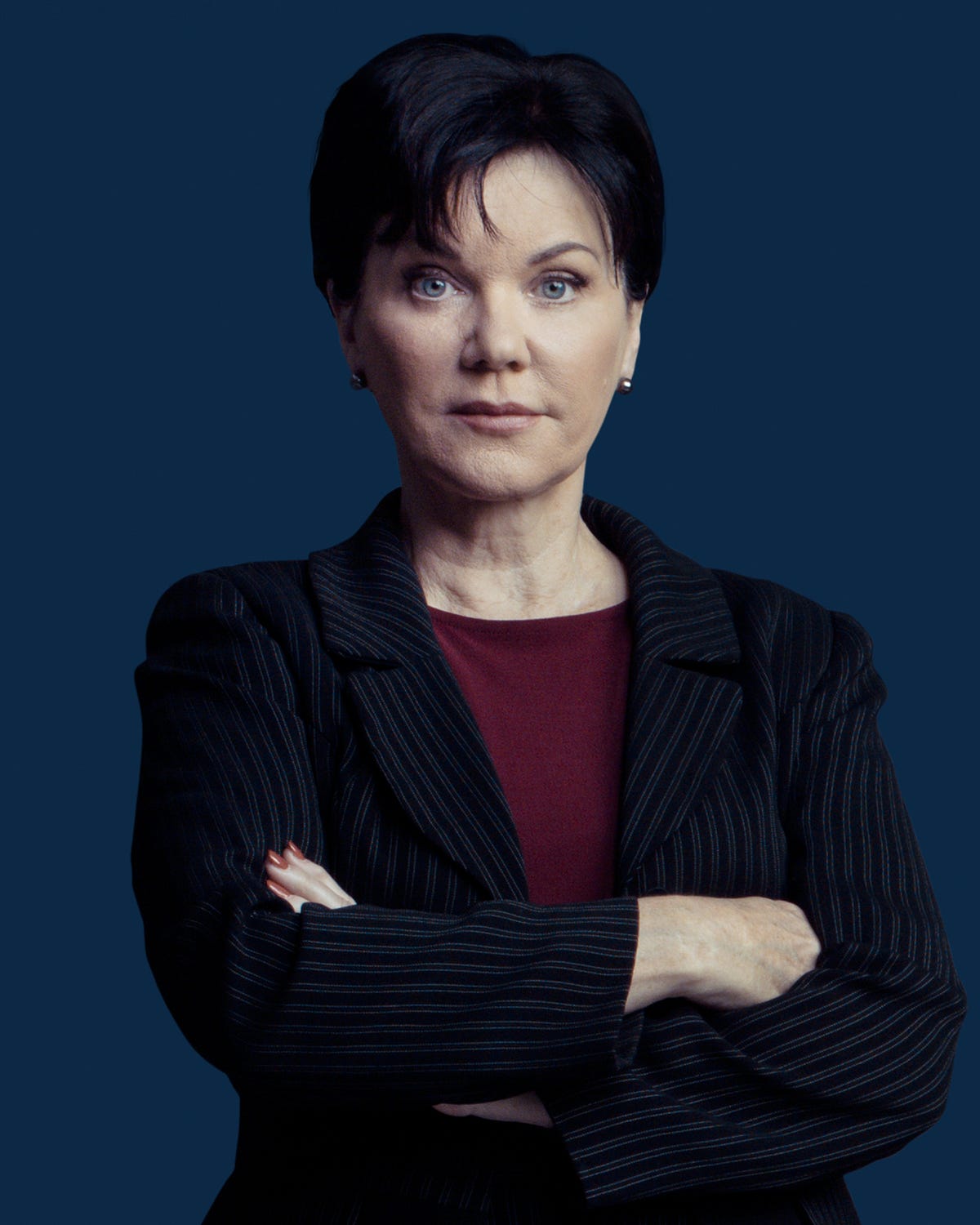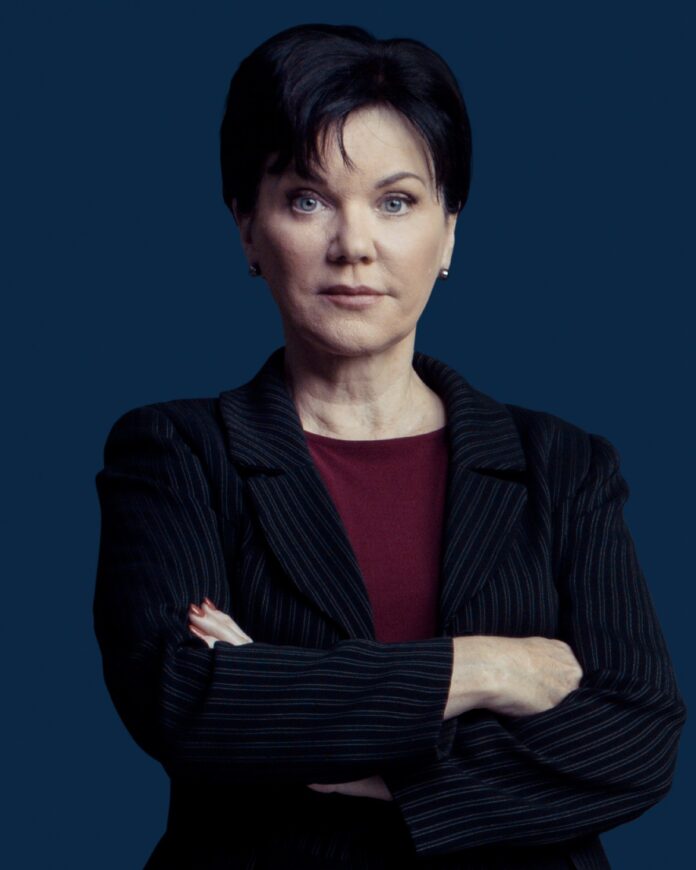“We need to start a movement where people suffering from mental problems could get help easier than they can today”

Words of Wisdom With Candice DeLong, Host of ID’s DEADLY WOMEN, and FACING EVIL WITH CANDICE DELONG
“Deeply disturbed people commit violent acts every day in our society, and sometimes the body count is staggering, such as the Las Vegas massacre and the church massacre in Texas. Guns are certainly an issue that needs to be dealt with, but I think we also need to return to the days when mental health clinics were taxpayer funded and people suffering from mental problems could get help easier than they can today. I would also like to see and hear a TON of PSAs (Public Service Announcements) on TV and radio telling people where to go and what to do if they are feeling desperate. Might save lives, you never know.”
I had the pleasure of interviewing Candice DeLong. Candice is a former FBI profiler and internationally recognized homicide expert. In her twenty-year FBI career, she was frequently at the forefront of some the bureau’s most memorable cases, including the Tylenol murders and the Unabomber case. Today, DeLong uses her clinical, profiling and investigative skills to explore some of history’s most fascinating female killers in DEADLY WOMEN, and a spin-off she created FACING EVIL WITH CANDICE DELONG, in which she goes behind prison walls to talk with convicted killers and explore the factors and motivations behind their crimes.
Thank you so much for joining us! Can you tell us a story about what brought you to this specific career path?
When I was a young psychiatric nurse I worked in the “maximum security” ward. There were lots of violent patients, and once in a while we’d have a patient admitted to the unit who had killed someone. Rather than go to jail until their trial, they would be sent to our unit at Northwestern University Hospital for 30 days of ‘observation and treatment’. Most of the female nurses did not want to work with these patients (because they were afraid of them), but I was drawn to them. One teenager had killed his own mother, another middle-aged man killed his wife and kids. I was curious about these individuals even though I came from a very loving family and could not relate to them. I think I was drawn to talk with and interact in a therapeutic setting with these patients because in a very real way, they also scared me. But I figured that if I knew what made them tick, why they committed the “ultimate crime” of murder, I would be better able to deal with a violent person if I ever encountered one in my personal life. Also, like many ID fans, I am simply fascinated by aberrant, criminal behavior. As they say, the more you know, the better off you are.

Can you share the most interesting story that happened to you since you started as an FBI profiler?
When I was at a training session, a medical examiner was running a slide show of murder victims and discussing the case details. One of the slides was of an elderly man on a morgue slab. His head was almost decapitated. I recognized the man and it gave me the chills. He was the father of a very violent psychiatric patient I encountered when I was a psych nurse. The patient, whom I’ll call “Jeff,” heard voices and was delusional. He threatened to kill me in the very same manner that he killed his father. He was angry with me because I would not let him out of his 4-way restraints so he could hold a cup of water and drink it. I was holding the cup for him, but it was 3:00 AM and I only had 1 other nurse on duty with me. Policy mandated that 6 people needed to be present to let him out of any restraint until his violent attacks stopped. He was 6’2″ and weighed about 230 pounds. He eventually got well — temporarily — and went home to live with his father. Then he went off his meds and killed his dad, who was a very kind man. Still gives me the shivers. This all happened 14 years after I last saw “Jeff” in the psychiatric ward. He’s probably in prison or dead now.
Can you share a story about a mistake you made when you were first starting? Can you tell us what lesson you learned from that?
Early in my profiling career, 1985, I met with a couple of cops regarding a murdered woman whose case they were investigating. They were sure the boyfriend had killed her. The crime scene was of a 25-year-old nurse who’d been run off a country road at 2:00 AM, dragged from her car, taken to a local quarry, raped and murdered. Rather than analyze the crime scene without their opinion, I listened to them. They influenced my judgement as to the crime scene, and I should have told them not to tell me about any suspects, just let me review the scene and read the autopsy. I sent the case to Quantico where more experienced profilers looked at it. The crime was eventually solved year later when a serial killer confessed to it. The fact is, husbands and/or boyfriends rarely rape & kill their girlfriend or wife in such a manner. I never forgot that. He had met her at a party and saw her kissing her boyfriend. He followed her after she left and then ran her off the road. He coveted what her boyfriend had — her body. He reasoned, “If she gave it to him, then she’ll give it to me.” She tried to fight him off but was overpowered. She had been a nurse, just like me.

What are some of the most interesting or exciting projects you are working on now?
I have been working on a book based on my Investigation Discovery TV show Facing Evil with Candice DeLong, wherein I interviewed 36 convicted murderers in 5 years. It’s a ‘behind the scenes’ true crime tome. You’ll love it!
Who are some of the most interesting people you have interacted with? What was that like? Do you have any stories?
I interviewed 2 men on death row in Texas. One of them did not commit the crime for which he was convicted and sentenced to death, and science says so — not me. The other, his buddy, killed his girlfriend and her 2 sons in a drunken, drug fueled rage. He says he didn’t do it, but there is absolutely NO doubt in my mind that he is guilty.
Which tips would you recommend to your colleagues in your industry to help them to thrive and not “burn out”?
Leave the field of true crime (for a while) if it’s getting to you. I dealt with stress by running several miles a day, and I had colleagues I could talk to about things. We also joked around a lot about the cases, it’s called “gallows humor.” I know it’s dark but it helps take the edge off the horror.
You are a person of great influence. If you could start a movement that would bring the most amount of good to the most amount of people, what would that be? You never know what your idea can trigger.
Deeply disturbed people commit violent acts every day in our society, and sometimes the body count is staggering, such as the Las Vegas massacre and the church massacre in Texas. Guns are certainly an issue that needs to be dealt with, but I think we also need to return to the days when mental health clinics were taxpayer funded and people suffering from mental problems could get help easier than they can today. I would also like to see and hear a TON of PSAs (Public Service Announcements) on TV and radio telling people where to go and what to do if they are feeling desperate. Might save lives, you never know.
What are your “5 things I wish someone told me when I first started” and why.
1). Watch your own back; not all the bad guys are on the street. Competition and jealousy are rampant in many workplaces, including the FBI. I never experienced it in nursing, but others did. Not everyone wants you to succeed.
2). Do NOT believe 1/2 half of what you hear regarding office gossip, and therefore NEVER repeat it.
3). If you are a woman working in a male-dominated setting, there are a few things you need to be aware of. First, you may think you can rely on other females to support you, but you’d be wrong. Be careful who you trust. Second, if you have an office affair with your boss, you will be found out and no one will respect you. Third, always dress professionally if you want to be taken seriously. That means NO cleavage or short skirts. And horizontal stripes and blue eye shadow are NEVER a good idea.
4) If you have something good going, keep it to yourself as long as you can. Because if you are in a minority, someone will try and take it from you.
5). A good reputation can be ruined in the blink of an eye, and it will follow you (or precede you) forever.
6) When you make a mistake (and we all do) admit it, don’t blame others, and move on to your next success.
Can you please give us your favorite “Life Lesson Quote”?
“Well behaved women rarely make history.” — Eleanor Roosevelt.

None of us are able to achieve success without some help along the way. Is there a particular person who you are grateful towards who helped get you to where you are? Can you share a story about that?
In nursing school, a psychiatric nursing professor, Dr. Caroline Cooper, and later a psychiatric nursing supervisor at Northwestern named Dawn, talked me through 2 very scary and pivotal situations with a homicidal and suicidal patient that had me questioning whether clinical psychiatry was for me. They were understanding, patient and encouraging. It made all the difference and I remained in the field for 9 years, eventually becoming head nurse. Then the FBI came along and the rest is, as they say, history.
How can our readers follow you on social media?
You can follow me @profilerdelong on Twitter and you can watch me on Deadly Women Fridays at 9/8c on Investigation Discovery.
Thank you so much for joining us. This was very inspirational!


